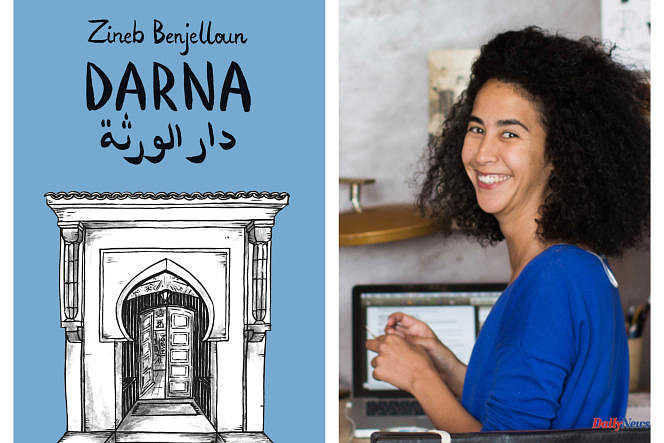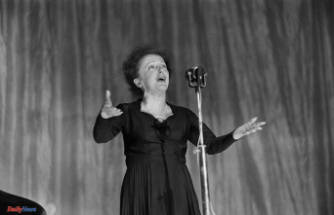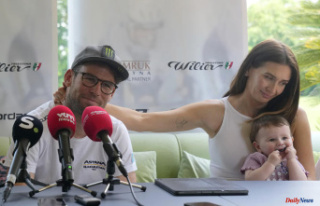In the family of Zineb Benjelloun, there is Basidi, the grandfather, a famous magistrate (cadi); Milalla, the grandmother, conductor of the breakfasts, snacks and dinners for the children and grandchildren; Hbibi, the idle uncle, who loves nothing better than snuffing tobacco under the benevolent gaze of his wife; and Abdellah, the cousin who has only one goal in life: to find a wife and a job – which takes up a lot of his time. Their "darna" (the family home), despite the lopsided false ceilings, sits on a solid foundation.
Presented one after the other at the start of the graphic novel, family and home seem to share the same qualities: grounded in the earth and the past, but fragile and uncertain about their future. With a thick and striking line, Zineb Benjelloun captures their story in black and white. A fresco that takes place in Casablanca where the grandparents settled after having moved according to the assignments of Basidi.
The novel celebrates the "golden age" of the house, marked by the abundance of guests and food. The "darna", which is almost the same age as the writer, becomes a refuge for four generations: "the proteges", who lived through French colonization, ration tickets and famine; "the decolonized", who experienced television, the beginnings of the French school, the joys and sorrows of immigration; "the French people", of which the narrator is a part, who went to study in France before returning, for lack of being able to regularize their situations; finally, the fourth generation, which barely speaks Arabic.
The illustrator born in Rabat in 1984 recounts this Moroccan trajectory, shaped by social ascent and the loss of a language. Designer of visual identities for cultural events and brands, Zineb Benjelloun rarely knows how to portray in one page the arbitrariness of existences tossed about by history. The writer notably uses board game boards and television game sets to show the failures and successes of her family. His drawings exude a real tenderness, tinged with nostalgia. The death of the grandfather and then of the grandmother cuts the story in two.
Accept the other with their flaws
“In Darna, time seems to stand still. Since the death of the grandparents, the house has frozen in time. Its inhabitants too. Everyone has created their universe and their little habits,” she says, using a drawing representing the three Ts: “Tenfiha” (snuff), “Tartine” and “Toilet”.
The story then gives way to the writer's childhood memories, such as the day when her grandfather gave her her first Koran. The grandfather's library, where the grandfather liked to retire to study, becomes a place of memory for the young woman and her loved ones. In a very subtle way, Zineb Benjelloun shows how the things left unsaid in a family are not necessarily a way of keeping up appearances: they can also be delicate means of accepting the other with their flaws, without exposing them. , nor make fun of. Thus, of her uncle Hbibi, heady figure of the novel, to whom the author dedicates her book.
"Often ill in his youth, he was diagnosed with 'asthma'. Basidi, a somewhat authoritarian father, was more lenient with him. He first found her a job as a scribe in court, before finding her a wife. After Basidi's death, Hbibi became "the man of the house". However, I have never seen him work, do the shopping, tinker, read or even pray... His days are punctuated with coffee and sniffing tobacco, glued to his transistor radio or to the TV and his pirated DVDs, which he chooses according to their bloody or romantic jackets. The rest of the time he spends ruminating (or meditating?) and wandering around alone for hours, gleaning a pile of objects that only he knows the use of. »
Part of Hbibi remains impenetrable. This does not prevent him from teaching his daughter love poems to help her find a lover. Without revealing everything about the story, we will say that these moments are what will remain. This precious and impalpable thing that is the subject of Zineb Benjelloun in this graphic novel: the links.












